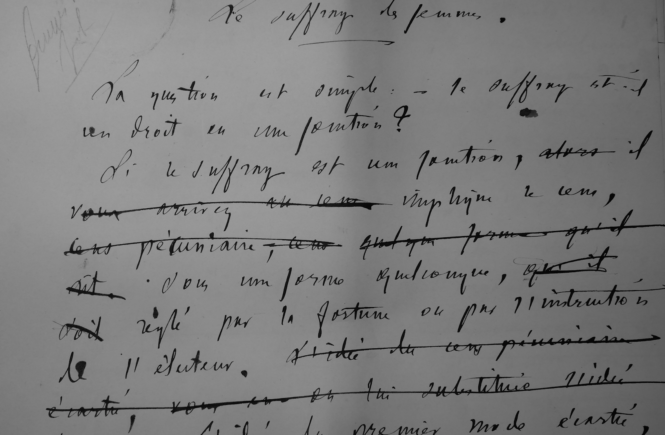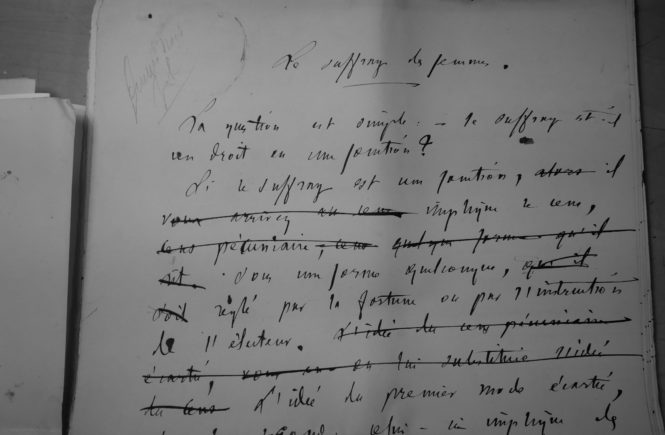What is the argument of opponents of women’s suffrage? Their incapacity, their feeble mind, their ignorance! They proclaim, by this very fact, that universal suffrage is a function. Men are sole responsible for regulating it. They establish themselves as the sovereign judges of the aptitudes of those who are to fulfill it. They claim to be the only ones capable of doing so; all of them are capable; and being the strongest, they exclude all women. After having banned half the nation from that role, they pompously declare that they have established universal suffrage. It is the oligarchy of sex substituted for the oligarchy of money.
French classical liberals and the issue of women’s rights
It is tempting for a liberty-minded historian to leave untouched the comforting presumption that French classical liberals, who championed freedom for the individual in the 17th, 18th and 19th centuries, must have upheld women’s rights too. Contemporary studies, while often obliterating the role of men in the development of feminist rhetoric, have found occasionally in the history of ideas some remarkable advocates well ahead of their times, and they have offered them as objects of uncritical admiration, in a sort of reconciliatory carnival. One easily concludes that feminism was burgeoning in every century, and that the rising tide was lifting up all boats. […]
The United States through the eyes of French classical liberalism
In the 18th and 19th centuries, French classical liberals have often seen the United States as an example and a model. Yet, if some have loved this country in a sort of long-distance relationship, others have actually made the travel and have written detail accounts. In this article, Benoît Malbranque examines the praises and criticisms put forward by authors such as Volney, Tocqueville or Gustave de Molinari, regarding the social and economic situation of the United States.
Material on the French school of political economy
Pierre de Boisguilbert (1646-1714) Hazel Van Dyke Roberts, Boisguilbert: economist of the reign of Louis XIV, New York, Columbia University Press, 1935 “Boisguilbert: An Early French Economist“, 1873, Westminster Review Vauban (1633-1707) A Project for a Royal Tythe, or General Tax, which by suppressing all the ancient funds and later projects for raising the public revenues, and for ever abolishing all exemptions, unequal assessments, and all rigours and oppressive distraining of people, will furnish the government a fixt and certain revenue, sufficient for all its exigencies and occasions, without oppressing the subjects, London, 1708 (see also the 1710 edition) Richard […]



